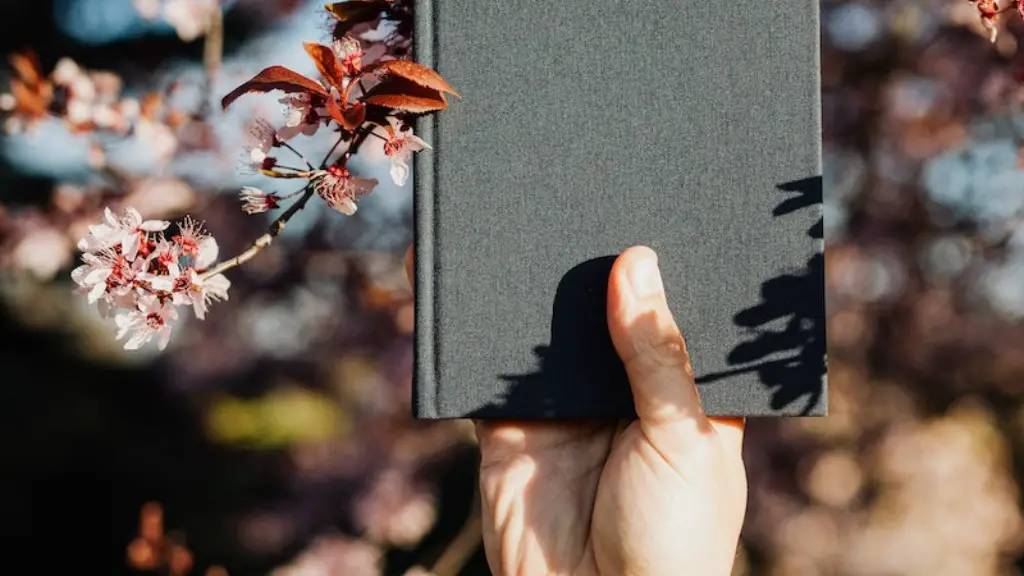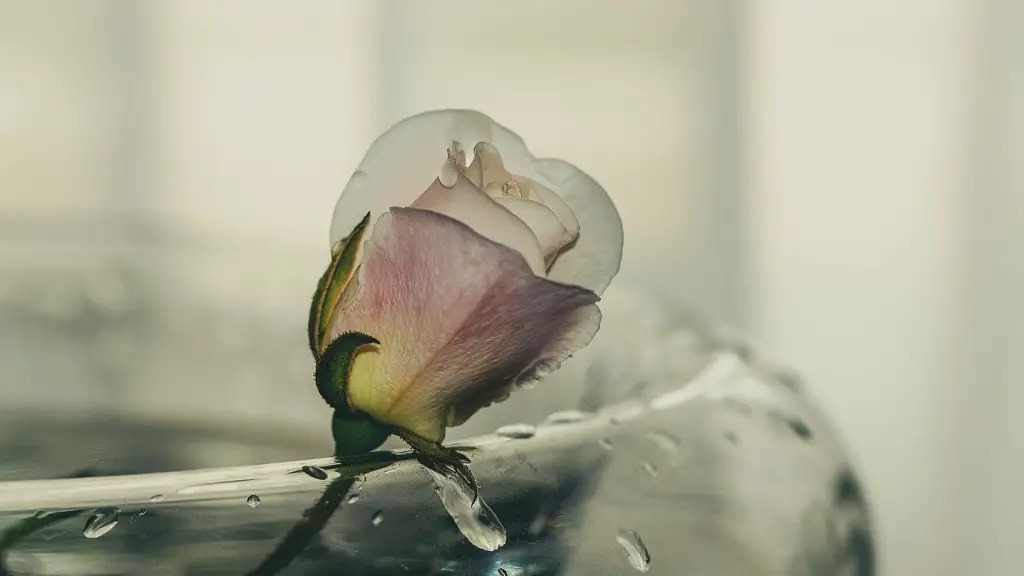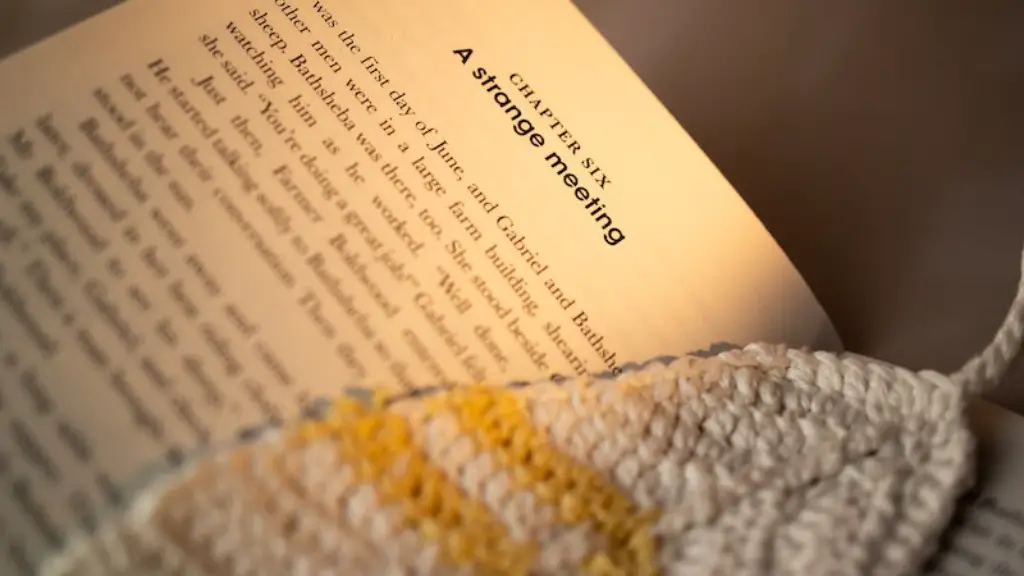Classical poetry is a genre of creative writing that is especially old, complex, and meaningful. It is usually written in an old-fashioned style and is considered to be a serious literary form of art.
Classical poetry is written with subtle details, meaningful metaphor, and a focus on beauty, truth, and emotions. It typically uses a specific poetic form and traditional rhyme, meter, imagery, and structure to create a powerful and memorable piece of writing. While classical poetry is often quite precise, it generally has some freer form than medieval, modern, or contemporary poetry.
The most common forms of classical poetry include sonnets, odes, epics, and elegies. Sonnets are short, lyrical poems often with a complex rhyme scheme. Odes are longer, more structured, lyrical poems that are full of description and imagery. Epics are long, narrative poems involving a heroic character and many different events. Lastly, elegies are somber and reflective poems that are used to express loss or mourning.
Some examples of notable classical poets include Dante Alighieri, William Shakespeare, and Alfred Lord Tennyson. Dante wrote the epic poem Divine Comedy, which is considered to be an influential and important work in world literature. William Shakespeare penned many works, the most famous being the tragedy Romeo and Juliet, which has become a staple in English language poetry. Likewise, Alfred Lord Tennyson composed a variety of poetry, most famously Idylls of The King, in which he takes on the task of recounting Arthurian Legends.
A great way to appreciate classical poetry is to experience it. Reading aloud, listening to it sung, or performing it in front of an audience can be a great way to understand its power. Additionally, analyzing and examining the structure, imagery, and sound can lead to further insight into the meaning of the piece.
The purpose of classical poetry is to make an emotional connection with readers and to inspire them to think more deeply. It should not just be seen as a tool of entertainment or a way to pass time. It is an art form of beauty, emotion, and connection.
Structure of Classical Poetry
Classical poetry can be structured in a variety of ways, depending on the purpose and desired effects of the poet. Generally, classical poems have specific forms, like a sonnet or epic. Additionally, these poems often include traditional rhyme, meter, and imagery.
Rhyme is a repeating pattern of sounds at the end of lines in a poem, usually using words sharing the same or similar ending sounds. Meter is the beat and syllable count of a poem, which varies depending on the form and style of the poem. Lastly, imagery is the use of visuals, like metaphors or symbols, to portray ideas in the poem.
The structure of the poem can vary, but typically the poem’s form is followed throughout the piece. For example, a sonnet may have fourteen lines, each with its own specific rhyme and meter, and an epic might use a specific set of elements and character archetypes. This form and structure allows the poem to feel unified, complete, and powerful.
Language of Poetry
The language of classical poetry is often more complex than everyday spoken language. The poet may use elevated language, like archaic words, to evoke a different feeling or reaction in the reader. Additionally, classical poetry is often symbolic, which allows for dual meanings and deeper messages. Classical poets also often employ metaphors, which are comparisons that are stated as if they are true even though they are not. These comparisons can be used to describe ideas in a more meaningful and powerful way.
For example, a poet could compare a person to a rose, saying they have similar petals, beauty, and thorns. This is a powerful metaphor and likely conveys a different meaning than if the poet simply noted the person has beauty and sharp edges.
Impact on Society
Classical poetry has had a lasting impact on society. It has been used to tell stories, to discuss important topics, and to express ideas in a deep and meaningful way. The works of classical poets can often be timeless and provide perspectives, insights, and emotions that remain relevant and powerful for many years. Additionally, classical poetry has served to inspire new poetic works, as poets of all eras have paid homage to the great works of former decades and centuries.
Classical poetry has also been used to provide education. Through the study of classical poems, students can learn about different topics, ranging from culture and history to grammar, style, and writing techniques. For example, by studying the Divine Comedy, students can gain an understanding of philosophical concepts such as Hell, Purgatory, and Paradise. Using poetry as a teaching tool allows students to connect to the material in a more meaningful way.
Analysis of Classical Poetry
Analyzing classical poetry can be a difficult but rewarding task. While it is often complex and requires knowledge of grammar, language, and structure, it can also provide deep insight into the poet’s thought process and perspective. Additionally, studying and interpreting classical poetry can help readers understand the powerful messages and emotions conveyed. Analyzing classical poetry can also help readers understand how beauty, truth, and emotion can be used to create a meaningful and timeless piece of art.
Influence on Modern Poetry
Classics have also had a lasting effect on modern poetry. While many poets have strived to be different from the classical poets, the works of these poets have inspired many modern poets. As modern poetry has evolved, it has seen a new surge of creativity, focusing on topics such as identity and personal relationships, as well as less traditional structures and forms.
Despite the evolution of modern poetry, the influence of classical poets still remains. Poets of all eras look to the works of they predecessors and find inspiration and meaning. By doing so, they are able to continue to tell stories, evoke emotion, and convey beauty in their own unique and memorable ways.
Subject Matter of Classical Poetry
Classical poets often write about a variety of topics. These poets may draw inspiration from their environment, relationships, their own religious beliefs and moral understanding, or even just the beauty of everyday life. These poets may also choose to focus on one particular topic, such as love, loss, death, faith, or nature. These topics can be explored in a variety of ways, from the serious to the comedic.
For example, Alfred Lord Tennyson’s poem Ulysses is about a man facing the end of his life and a longing for adventure and exploration. William Shakespeare, on the other hand, often wrote about love and relationships, exploring the complexities and difficulties experienced by characters in his plays and poems.
Conclusion
Classical poetry is an important and influential genre of creative writing that has been studied and enjoyed for centuries. This type of poetry is typically structured in a specific way, often uses elevated language and symbols to evoke emotion, and has served to educate and inspire many people. Most notably, classical poetry has been used to inform and influence modern poets, inspiring them to create their own pieces of art.




